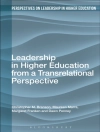Language education is a highly contested arena within any nation and one that arouses an array of sentiments and identity conflicts. What languages, or what varieties of a language, are to be taught and learned, and how? By whom, for whom, for what purposes and in what contexts? Such questions concern not only policy makers but also teachers, parents, students, as well as businesspeople, politicians, and other social actors. For Japan, a nation state with ideologies of national identity strongly tied to language, these issues have long been of particular concern. This volume presents the cacophony of voices in the field of language education in contemporary Japan, with its focus on English language education. It explores the complex and intricate relationships between the “local” and the “global, ” and more specifically the links between the levels of policy, educational institutions, classrooms, and the individual.
In the much-contested field of foreign language teaching in Japan, this book takes the reader directly to the places that really matter. With the help of expert guides in the fields of anthropology, sociology and linguistics, we are invited to join a vital discussion about the potentially revolutionary implications of the Japanese government’s policy of teaching Japanese citizens to not only passively engage with written English texts but to actually use English as a means of global communication.” – Robert Aspinall, Ph D (Oxford), Professor, Faculty of Economics, Department of Social Systems, Shiga University, Japan
This insightful book about language education involves different disciplines using ethnographic methods. Both ‘native’ and ‘non-native’ speakers of Japanese (or English) collaboratively examine two different types of qualitative approaches in Japan – the positivistic and the processual. This is a must-have book for researchers and educators of language who are interested in not only Japan but also language education generally.” – Shinji Sato, Ph D (Columbia), Director of the Japanese Language Program, Department of East Asian Studies, Princeton University, USA.
Mục lục
Foreword.- Preface.- Introduction.- Homeland Education in a New Home: Japanese Government Policy and Its Local Implementation in a Weekend Japanese Language School in the United States.- Identity, Place, and Language: Conflict and Negotiation in the Writing of an English Textbook for Japanese Secondary School Students.- Stuck in between: English Language Environment for International Students and Skilled Foreign Workers in Japan.- Bringing a European Language Policy into a Japanese Educational Institution: The Contested Field of Institutional Foreign-Language Education Reform.- Effecting the “Local” by Invoking the “Global”: State Educational Policy and English Language Immersion Education in Japan.- Cultures of Learning in Japanese EFL Classrooms: Student and Teacher Expectations.- Two Classes, Two Pronunciations: A Postmodern Understanding of Power in EFL Students’ Classroom Performance.- Willingness to Communicate: The Effect of Conference Participation on Students’ L2 Apprehension.- An Internship in Communicative English Teaching.- Afterword.- Appendix: Discussion Questions.- About the Authors.- Index.












